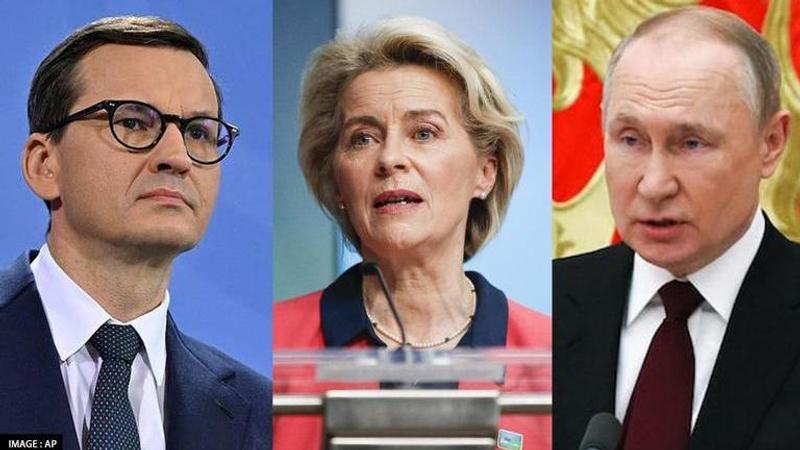Published 17:04 IST, June 6th 2022
Poland: Civil unrest as fuel prices soar high after Russia bans key Polish pipelines
“We already have coal. Now it’s time for oil, and second step is for gas. The best option is take them all together," Polish environment minister suggested.

As the fuel prices hit a record high in Warsaw due to EU’s sixth package of sanction which includes phasing out Russian oil reliance and uncertainties over the alternative source of oil loomed, Polish citizens flooded the streets demonstrating against the government.
Russia’s unprovoked Ukraine invasion since February 24 has skyrocketed the oil prices across the bloc, pushing the prices to a whopping 7.62 zlotys per litre, 1.66 euros on average. The soaring prices of oil triggered civil unrest, particularly in the Polish town of Bielsko-Biała on Sunday, as several drivers parked their cars blocking the fuel stations and protesting in front of the partially state-owned PKN Orlen fuel corporation.
The unrest marred the Polish towns after President Andrzej Duda signed a major amendment to the VAT Act prolonging the so-called “anti-inflation shield”. Duda extended the lower excise tax rates that his government had introduced in February until the end of July to bring the rising fuel prices under control. His decision, however, was widely criticised as lawmakers argued that it would further push up the fuel prices.
“There is every indication that Pb95 petrol will soon approach 8 zlotys/litre (about €1.7),” e-petrol.pl said in its analysis, according to European outlet Euractiv.
Poland urged EU to impose 'punitive sanctions' on Russian oil; latter banned key Polish pipelines
Oil prices shot to its highest since 2000 due to coordinated sanctions of EU nations, including Poland’s. The latter urged its European Union partners to unite and impose punitive sanctions on Russian oil and natural gas sectors to weaken Moscow’s resolve and funding of war. Duda asserted that the EU mustn't cave in to pressure to pay for Russian gas in rubles.
“We will call for immediate sanctions on Russian oil and gas. This is the next, and urgent, and absolute step,” Polish Climate and Environment Minister Anna Moskwa said.
“We already have coal. Now it’s time for oil, and (the) second step is for gas. The best option is take them all together.”
In a retaliatory move, Moscow blacklisted the key Polish pipeline in order to limit Europe’s ability to import Russian natural gas if Ukrainian pipes were damaged during Russian assaults as war ensued inside the Ukrainian territory. Russian energy giant Gazprom has cut supplies to Bulgaria and Poland in a move branded as “blackmail” by Warsaw. Both Bulgaria and Poland have refused to pay for Russian gas and oil in Rubles.
EU Energy Commissioner Kadri Simson warned that Russian corporation Gazprom’s move “clearly shows that they are not reliable suppliers and that means all the member states have to have plans in place for full disruption” to their supplies. The 27-nation EU imports an estimated 40% of the gas from Moscow.
As numerous energy-intensive EU oil corporations have slowed down production, and prices soared, Polish citizens took to streets demanding relief from the government. It remains unclear if Poland has switched to an alternative supplier, as Moscow is the world's largest oil exporter, and sends more than seven million barrels of crude oil to countries around the world, that included Germany and other EU countries.
Updated 17:04 IST, June 6th 2022




